Reading Lists
The ‘4 Sentence’ Cover Letter Job Application That Gets You The Job Interviews

Hi everyone, today we’re going to talk about cover letter for job application. When I say cover letters what I really mean is any means you’re going to use to introduce yourself to the employer.
That could be a cover letter, if companies still require one. It can be an email, perhaps with your resume attached, and it could be an application tracking system (ATS), where they allow you to provide some notes about you, yourself, things that they should know about you.
Really it’s whatever means you’re going to use to introduce yourself. Now, there’s a couple of precursors that I want to mention right before we dive into the four sentences. There’s three things that your introduction should do, and I believe you can do those in four sentences, but I want to talk a little bit about just cover letters and what the purpose was.
What is cover letter for job and it’s uses?
Cover letters are from a long time ago when we didn’t have computers and we didn’t have emails and we didn’t have application tracking systems, and you had to mail your resume to an employer about a job opportunity or a job opening that you saw or was advertised.
You needed to insert that cover letter to introduce yourself, to let them know what it was you were applying for. They didn’t really understand that.
Now we have these systems that tag your resume and your name to particular jobs that you apply to, it’s much different now. You can also upload your cover letter on LinkedIn.
Regardless you still need to effectively introduce yourself, so regardless of whether you’re doing that in an attached document or whether you’re doing that in an email introduction or whether you’re doing that through an applicant tracking system, there’s three things you ultimately need to do. You want to make sure that when you do them you’re respecting the person’s time.
You may also read: 5 Resume Mistakes To Avoid To Get into a Job Interview
The average person today, let alone the average person who is recruiting for many positions, gets about 150 emails every day. Somebody who’s hiring for a position might get twice that many or three times that many, so you want to make sure that whatever you do you’re being brief and you’re respecting their time.
Trust me when I tell you that most people are moving at such a break neck pace, most of those recruiters just want to open that resume, look to see if you are a good fit for that particular position or another position in their company.
Many of them are not going to take the time to read a lengthy intro or a lengthy cover letter, so just keep that in mind.
Okay, one other little housekeeping item. I talked a few weeks ago about how to build your ultimate professional winning resume. If you haven’t seen that blog yet, check it out on my blog post. There’s some good tips and tricks and formatting items that I addressed in that particular lesson or episode that I think is going to be really helpful for you to understand as we talk about these four sentences that you need to do.
What is the purpose of cover letter for a job?
The cover letter’s purpose, it should be brief, it should tell them why you’re qualified, but you want to create intrigue. You ultimately want to get them to open your resume.
Most of them are going to be inclined to do that anyway, so you don’t need to give them more in the email.
You don’t want them to see this much. I recommend reserving that for the resume. Perhaps you put one significant accomplishment, but I think you can do this in four sentences, five at the very most. That’s it for today. Also, I’d love to hear from you.
If you have any insight, any questions about this, drop down to the comments section, let me know you’re here. Ask me any questions, share it. I always welcome the shares, and until next week, we’ll see you.
How to address in cover letter?
First thing, how to address that intro. Dear whoever it is, and I know there are many ways you can figure out who that is, or dear sir or madam, or To Whom It May Concern, or whatever intro you are comfortable using.
I’m writing to inquire about the opening for, so now you’re telling them exactly why you’re inquiring. It’s just one sentence, period, that’s it, let them know why. Go to the next break, make a new paragraph so that they now can get the meat and potatoes.
This is what you offer and why you’re qualified. I would just say that I offer X-years of experience in whatever your specialty is, and would make me a strong candidate for this opening.
You may also read: Resume Writing: 7 Important Tips For Getting Your Dream Job
That’s obviously your opinion, but I think it’s a nice way to collect that and give them some insight that you do believe you are a strong candidate. They want to hear that.
Then what I would do is I would just add one more sentence in that paragraph, and just say the top portion of my attached resume highlights my career profile and three significant accomplishments that are also in alignment with this position.
Now what you’re doing is you’re creating intrigue. You’re telling them exactly where they can find the information that they need in order to know whether or not you’d be a could candidate, and it won’t take them very long to see it.
Then I would make a break, and then the last little sentence I would make is, I’d welcome the opportunity to speak with you if you feel I’d be a strong candidate for this or any position in your organization.
It’s extremely important that you add the any other position in your organization. People need help with how to think these days.
Everybody is moving so quickly, it’s not because they’re not smart, but you just want to make sure that they recognize that number one you’re open to it, and number two that they should be thinking that way.
You don’t want them to just open your resume, look at it, and say, He or she’s not a fit for the position that they applied for.
“You want to remind them to make sure that they think about all positions in their company. It may sound very obvious, it may sound like common sense, but when you’re moving so quickly it’s not always common practice. Okay, so there it is.
I’m writing to inquire about what the position is, I offer X years of experience, I have strong these skills. Top portion of my resume highlights my career profile and my significant accomplishments, which puts me in alignment with the position. I’d welcome the opportunity and so on. Now one other thing you might be thinking, why not put those highlights and that detail in the cover letter?
Example
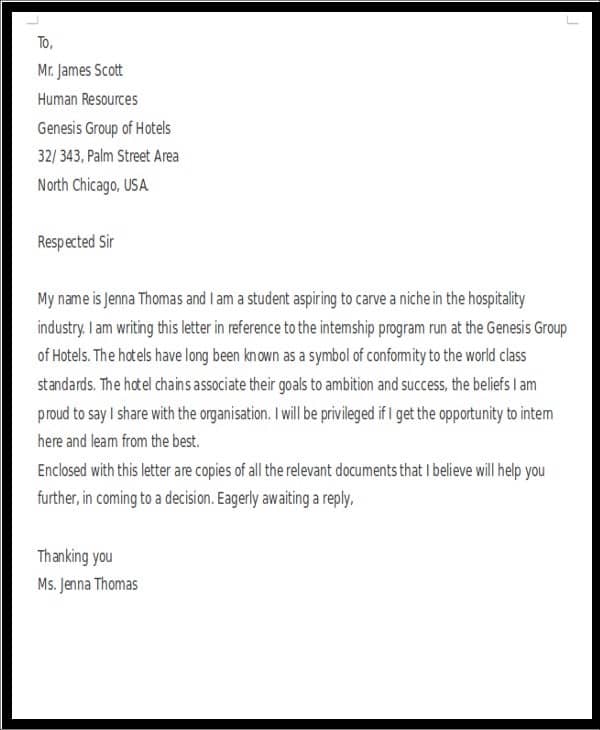
FAQs
Introduce yourself to the party.
Mention the job (or type of job) you’re applying for (or looking for) and explain that your qualifications and expertise fit the criteria of the work.
encourage the reader to read the remainder of the resume
Your contact address, a salutation, the body of the cover letter, an acceptable ending, and a signature are all parts of a cover letter. Study the format of a cover letter, as well as suggestions of what to put in each segment.
Create a new cover letter for each position, but feel free to use a sample
Including the name of the hiring manager.
Look About Your Resume
Don’t Think What the Organization Will Do with You
Highlight the Best Experiences
Showcase The Expertise.
The following is an example of how to finish a cover letter:
In the footer, sign off with your full name and simple contact information.
Choose a formal closure that is appropriate: Thank you, Thank you, Thank you, Thank you, Thank you, Thank you, Thank you, Thank you, Thank you,
Finish the cover letter on a strong note.
In your cover letter’s conclusion, have meaning to the boss.
According to recruiters, the cover letter should be short and contain the following:
Demonstrate how the successes contribute to the job.
Emphasize how your expertise and experience are just what the boss is looking for.
Demonstrate sincere passion and excitement for the role.
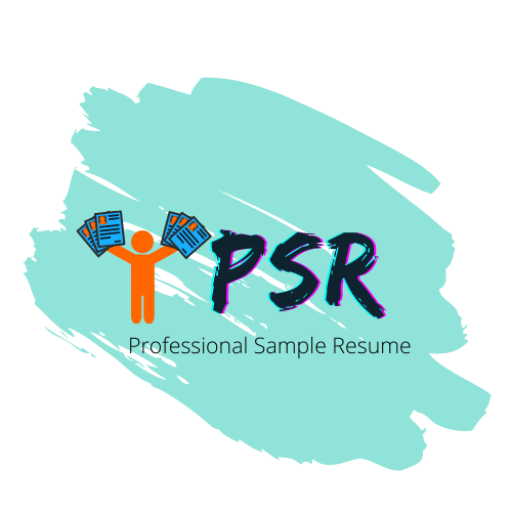
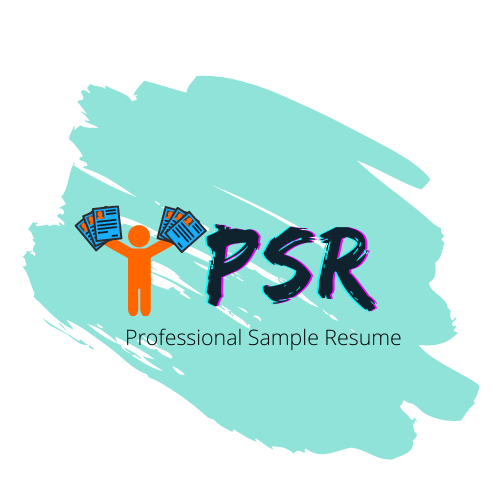
![Write An Incredible Resume [With Examples]](https://mly9jtuj6mmj.i.optimole.com/w:270/h:162/q:mauto/rt:fill/g:ce/f:best/https://professionalsampleresume.com/wp-content/uploads/2021/09/5-Golden-Rules-Write-an-Incredible-Resume.png)


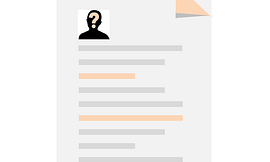
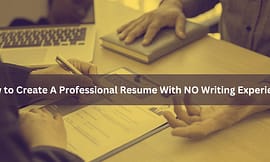
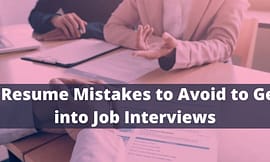
Thanks for the guide Professional Sample Resume. I think cover letters play a vital role in shortlisting the resume.
Means a lot.